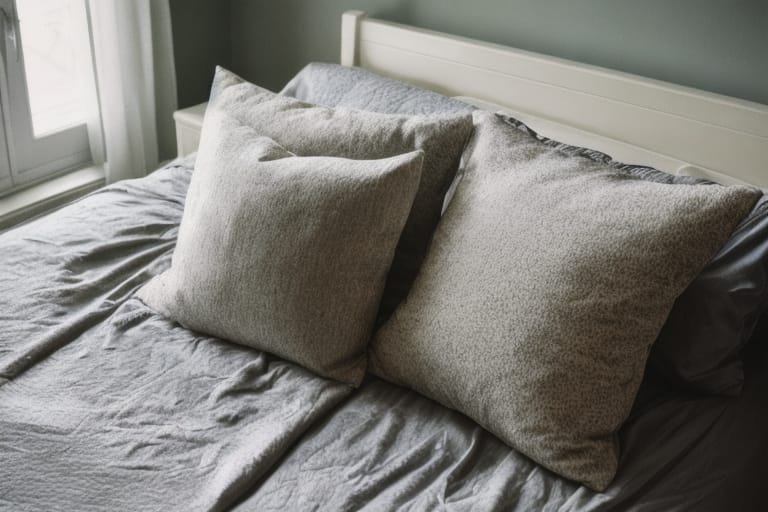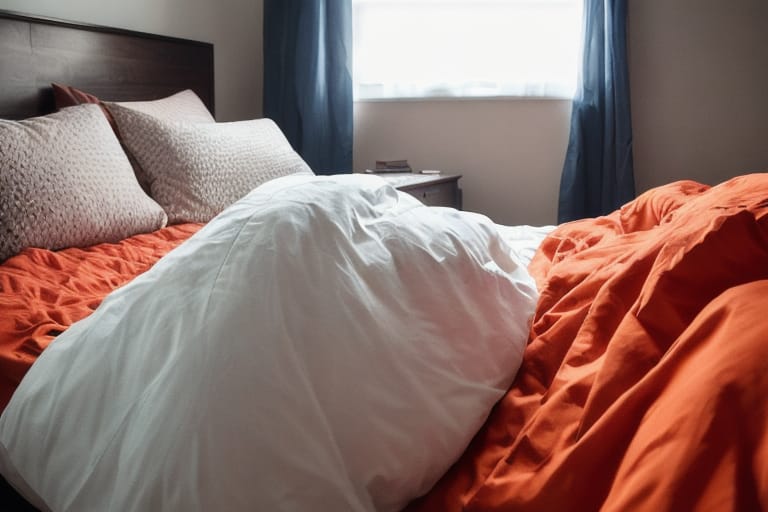Fluffing up your nest with a cozy down comforter is one of life’s simple pleasures. But how much do we really know about where that plush down fill comes from?
In recent years, increased attention has turned to the ethical sourcing of down in bedding products. As consumers learn more about industry practices like live-plucking and force-feeding that can inflict cruelty on geese and ducks, demand grows for ethical alternatives.
This beginner’s guide will explore what really goes into ethically-sourced down, spotlight major certification standards, outline considerations around animal welfare and sustainability, and equip you to make informed choices as a conscious consumer. Let’s fluff up some facts!
What Is Ethical Down and Why Does It Matter?
Down refers to the layer of fine, fluffy feathers found closest to a goose or duck’s skin that provide insulation and padding. This superior down fill is coveted in bedding for its unbeatable warmth, lightweight comfort and durability.
Ethical down implies responsible sourcing practices that ensure humane treatment of the birds who supply these feathers. This includes adhering to animal welfare regulations during down collection as well as non-force-fed rearing, free-range housing, proper handling, veterinary care, and more.
As public awareness increased around conventional down production methods involving live-plucking and force-feeding, consumers demanded change. This led to the creation of industry oversight and sustainability standards like the Responsible Down Standard to protect goose and duck welfare.
Choosing ethically-sourced down is now seen as an important way to vote with your wallet against cruelty while supporting responsible practices. As interest grows, more bedding brands get on board with ethical sourcing and innovations in animal-friendly down alternatives also expand options.
Major Certification Standards in Ethical Down
Several respected independent organizations have created certification standards and auditing processes to define, assess and track ethical sourcing claims on home products like down bedding.
Understanding these key certifications can help you recognize and evaluate ethical down when comparing options.
Responsible Down Standard (RDS)
The Responsible Down Standard from Control Union Certifications sets strict protocols protecting geese and ducks from any unnecessary harm. RDS criteria include:
- No live-plucking or force-feeding
- Access to open areas outdoors with protective shelters
- Humane handling during down collection
- Responsible feeding, healthcare and stocking density
Brands displaying the RDS logo meet annual third-party audits to prove ethical treatment across their entire down supply chain. This is widely recognized as the industry’s strongest assurance of animal welfare protection.
Global Traceable Down Standard (GTDS)
The newer Global Traceable Down Standard focuses on verifying down origins and tracking through each step from farm to product. Key requirements are:
- Robust traceability system registering farms, buyers, processors
- On-site inspections confirming ethical practices
- Monitoring for supply chain transparency
Where RDS emphasizes welfare, GTDS adds extra traceability confirmation. Between the two, conscientious shoppers gain full ethical supply verification.

Protecting Animal Welfare in Down Production
Geese and ducks deserve to live free from cruelty, whether raised for food or used in the down industry. Conscientious consumers should understand what “humane standards” really means when shopping for ethically-sourced bedding.
What Are the Animal Welfare Concerns in Down Production?
Live-plucking and force-feeding stand out as primary worries. Traditional practice once saw large numbers of geese live-plucked during molting season so feathers grew back for additional harvests. Force-feeding with excessive amounts of feed via tube also produced the fatty goose liver delicacy called foie gras.
Both live-plucking and force-feeding lead to clear suffering when standardized. But even on farms avoiding these, activists still raise reasonable concerns about separation of mates, handling stress, over-crowding, restricted movement and lack of enrichment.
“There are no regulations specifically for the welfare of geese and ducks farmed for meat and eggs, let alone down production. Even companies with excellent initiatives cannot guarantee all cruelty is avoided across such complex supply chains without strong auditing and transparency.”
– Claire Palmer, Senior Director of Investigations at Animal Equality
How Are Birds Ethically Treated Under Third-Party Certifications?
Down accredited through organizations like the Responsible Down Standard must fully forswear live-plucking and force-feeding while adhering to strict requirements around:
- Shelter access
- Veterinary care
- Free range areas
- Stocking density
- Proper handling
- Transport conditions
- Slaughter methods
Annual audits check that geese and ducks live cage-free with enough space, enrichment and socialization under healthy rearing practices qualitatively superior to conventional production.
Why Choose Ethical Down Bedding Over Traditional Products?
You may pay a small premium for responsibly-sourced down certified under animal welfare standards. But the advantages over conventional down make it an easy investment towards values-based consumerism.
Exploring Sustainable and Cruelty-Free Down Alternatives
If wanting to avoid goose or duck down due to personal lifestyle, you can still keep cozy thanks to innovative new bedding materials offering comparable comfort.
Top-Rated Down Alternative Comforters
| Brand | Name | Rating | Price | Material |
|---|---|---|---|---|
| Parachute | Down Alternative Comforter | 4.5 ⭐ | $$ | Polyester (100% recycled) |
| Buffy | Cloud | 4.7 ⭐ | $$ | Eucalyptus Lyocell |
| Cozy Earth | Bamboo Comforter | 4.8 ⭐ | $$$ | Viscose from Bamboo |
These top-rated down alternative comforters mix materials like eucalyptus, modal, and bamboo to mimic plush goose down using sustainable, cruelty-free textiles.
The microfiber fills adapt to your body temperature, add ventilation and avoid allergy issues some see from natural down. For vegans plus anyone seeking softer environmental impact, plant-based and recycled synthetics make quality substitutes.

Takeaways on Ethical Down for Conscious Consumers
- Choose respected certifications like Responsible Down Standard or Global Traceable Down Standard when comparing bedding to verify ethical supply practices protecting geese and ducks.
- Premium ethically sourced down will cost moderately more but delivers better quality, comfort and longevity compared to bargain bedding along with assurance against live-plucking and force-feeding.
- For eco-friendly vegan options, down alternative microfibers from bamboo, eucalyptus and recycled synthetics mimic properties of natural down with lower environmental impact.
- Brands embracing animal welfare regulations and sustainable production depend on you to grow the market for responsible down. Conscientious consumer purchases encourage further innovation meeting shared values.
As more of us learn about and demand humane practices in down production, we collectively can transform an industry to prevent cruelty, reduce exploitation and develop eco-friendly alternatives. By making informed choices, our shopping aligns with principles protecting the planet and everyone who calls it home across species.
That gives us all a fluffier future to dream on.
Frequently Asked Questions
What’s the difference between down and feathers?
Down refers to the soft, fluffy underlayer close to the skin that provides superior insulation. Feathers are longer and more structured, layered on top to provide padding and protection. The highest quality bedding uses primarily down fill for lightweight warmth and comfort.
Is responsible down harvesting painful for geese and ducks?
Ethical standards like the Responsible Down Standard ensure humane practices without any live-plucking or unnecessary harm caused to geese and ducks during down harvesting. Regular audits confirm proper animal handling, housing conditions, veterinary care and slaughter methods that avoid undue distress.
Why does RDS vs GTDS matter?
The Responsible Down Standard focuses on animal welfare protections whereas Global Traceable Down Standard provides third-party confirmation of a down product’s full supply chain integrity back to approved sources. Together they offer assurance of both humane rearing and traceability.
What proof should I ask brands for around ethical down sourcing?
Reputable brands partnering with ethical suppliers should publicly share their latest third-party audits from RDS or GTDS certifying bodies like Control Union or Textile Exchange. Transparency reports confirm their commitment to responsible standards. Any lacking details could indicate exaggerated claims around animal welfare or traceability protection.
How does recycled down support sustainability?
Recycled down gives used bedding products new life, reducing landfill waste and environmental impact from raw material processing. Brands like DOWNLITE collect shed feathers from apparel factories and pre-consumer down scraps to sterilize for insertion in fresh pillows or jackets. This ethical choice keeps cozy warmth circulating responsibly.








